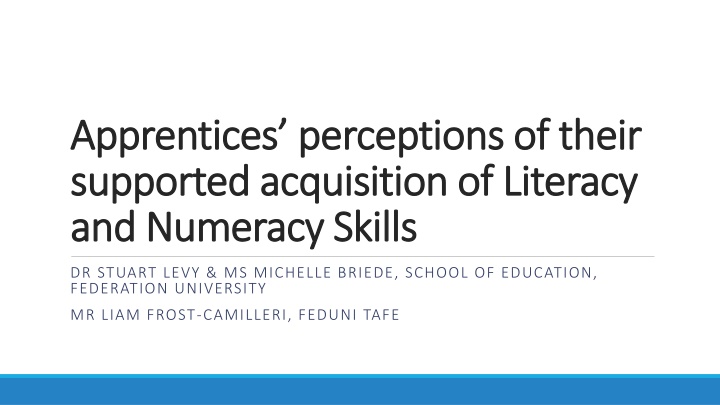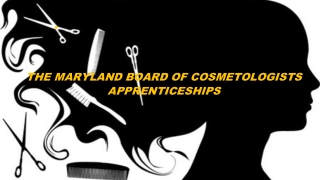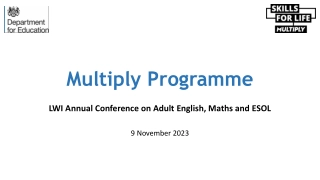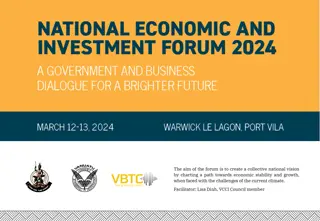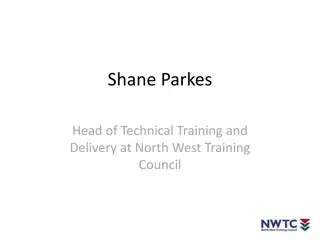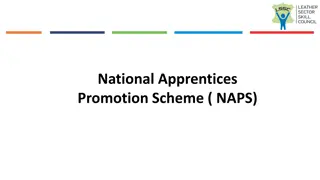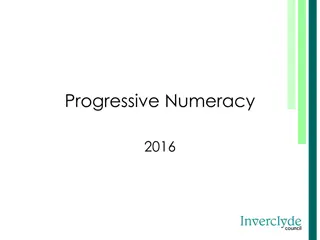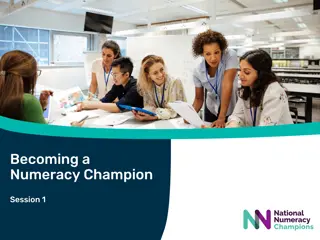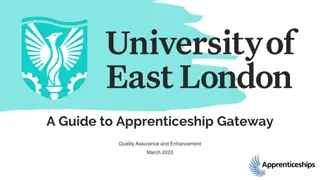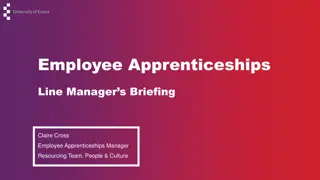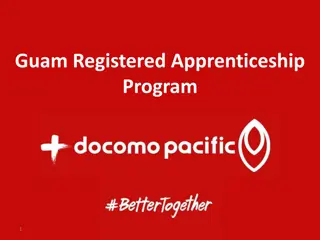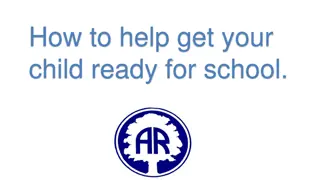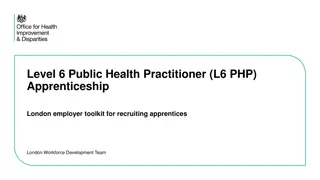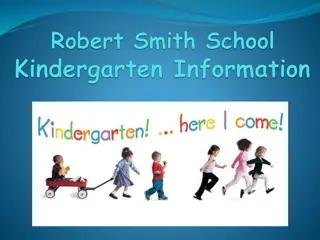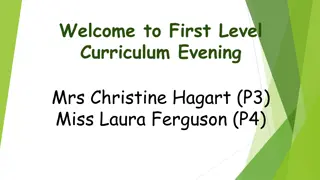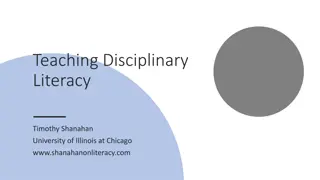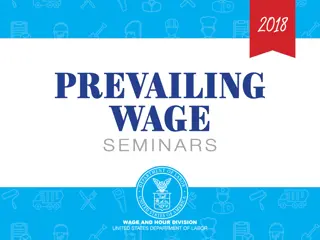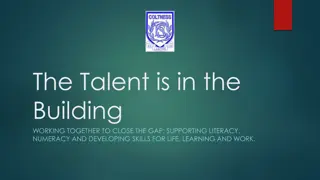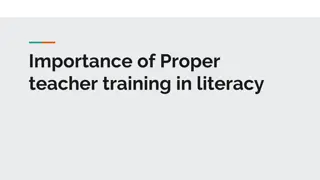Apprentices' Perceptions on Literacy and Numeracy Acquisition
This study by Dr. Stuart Levy, Ms. Michelle Briede, and Mr. Liam Frost-Camilleri from Federation University and FedUni TAFE explores how engineering apprentices perceive the acquisition of literacy and numeracy skills. It delves into learning strategies, supportive measures, and challenges faced by learners in transitioning from school-based to workplace literacy.
Uploaded on Feb 23, 2025 | 0 Views
Download Presentation

Please find below an Image/Link to download the presentation.
The content on the website is provided AS IS for your information and personal use only. It may not be sold, licensed, or shared on other websites without obtaining consent from the author.If you encounter any issues during the download, it is possible that the publisher has removed the file from their server.
You are allowed to download the files provided on this website for personal or commercial use, subject to the condition that they are used lawfully. All files are the property of their respective owners.
The content on the website is provided AS IS for your information and personal use only. It may not be sold, licensed, or shared on other websites without obtaining consent from the author.
E N D
Presentation Transcript
Apprentices perceptions of their Apprentices perceptions of their supported acquisition of Literacy supported acquisition of Literacy and Numeracy and Numeracy Skills Skills DR STUART LEVY & MS MICHELLE BRIEDE, SCHOOL OF EDUCATION, FEDERATION UNIVERSITY MR LIAM FROST-CAMILLERI, FEDUNI TAFE
This research Explored how engineering apprentices acquire literacy and numeracy skills from the students perspective Learning strategies; Helpful learning supports; What possible supports could look like.
Multi-literacies In the context of this study, multi-literacies refers to the set of skills required to communicate with a range of people in a range of contexts (Government of South Australia, 2008)
Difficulties for learners Agrifood Skills Australia (2009) detailed the difficulties learners have when encountering new tasks A space should be created for employees to ask questions Making the transition from school based to workplace literacy.
How we support students (LN Support) Many different approaches Non-remarkable Easy access to teachers Limiting the number of assessment tasks Providing unscheduled opportunities to learn Are they transferable?
LN Support Courses Traditionally help outcomes in self-confidence and self-esteem The focus shift to economics The change in support compliance and funding Literacy and numeracy proficiency has become the sole measure of success (Balatti et al. 2006).
Learning how to learn O Neill and Gish (2001) assert the importance of learning how to learn
Findings Inability to articulate Confidence Dependant strategies Critical self-reflection and meta-awareness Disciplinary language Feedback on what would help How the LN Support teacher is viewed Fixed mindset
Inability to articulate acquisition Self-reflection and articulation Jean: I m not sure what I do actually you d probably see what I do but I don t actually know Ray: I can t think of one. It s just how my brain works .
Confidence Minor changes in survey - 11% in mathematics Reading was reported strongest Most used strategies Looking up previous information Re-calculating equations Seeing if the answer was reasonable Least used: Cheating.
Dependant strategies Finding the answer and dependence on the teacher lack of curiosity Remy: everything s in the book so as soon as you read over it if you don t understand it, just keep reading over it and eventually you ll get it Teacher Kurt: ask the teacher if he can explain it to me Logan: 95% of the time I go to the teacher Scott: Usually it ends up with me having to talk to the teacher Jean: if it doesn t make sense then I usually just ask the teacher. Hank: [I] just ask the teacher more questions .
Critical self-reflection/meta-awareness Came with them before they got here/little awareness/understood the rules of the game Understanding soft skills = navigate it easily Scott: in [his] DNA Hank: It s in solving problems generally.
Disciplinary Language Challenging / reading demands Kurt: Sometimes there is language there I wouldn t understand Jean: there was a lot of big words that I did not know about Logan: Ah yes, sometimes you ve got big words and you don t know what it means .
Feedback on what would help Weren t sure couldn t really suggest changes More interaction, more clips, different formats, listen to the talk How do we specifically help students? Logan I understand your question but I don t know the answer! Jean: Umm usually they re too strong headed umm I don t know Bobby: I m not quite sure in all honesty .
LN Support teacher Good that they re there but I don t use them - contradiction Bobby: well I don t really know what he was there for. I thought he was like an aid for someone Jean: Is that the guy that comes around?
Fixed Mindset Many students were fixed in their mindset not in a learning capacity Ray: Well I m more of a mathematical type of person so I find math a little bit more easy than like literacy so Scott: I know most of my own strengths and weaknesses (VN) umm and one of my biggest weaknesses is numeracy, always has been, always will be .
Conclusive Points Need to do rather than learning Culture change tick and flick Viewing LLN as deficient based Importance of knowing how to learn LLN Support model.
Next steps Other areas? Strategies that work.
References Agrifood Skills Australia. (2009). From the ground up: addressing core skills in every level Agrifood qualifications. Townsend & Waterhouse, 2008 Balatti, J., Black, S., & Falk, I. (2006). Reframing Adult Literacy and Numeracy Course Outcomes: A Social Capital Perspective. An Adult Literacy National Project Report: ERIC. Bednarz, A. (2014) Understanding The Non-Completion of Apprentices. NCVER; Adelaide. Black, S. & Yasukawa, K. (2013) Beyond deficit models for integrating language, literacy and numeracy in Australian VET. Journal of Further and Higher Education, 37:4, 574-590. Berghella, T & Molenaar, J (2013) Seeking the N in LLN, NCVER, Adelaide. Government of South Australia (2008) Makin literacy everybody s business, Government of South Australia, Department of Further Education, Employment, Science and Technology, Adelaide. McHugh, M. (2011) Crossing the academic-vocational divide. Fine Print, 2011, vol. 34, pp.12-16. O'Neil, S., & Gish, A. (2001). Apprentices' and trainees' English language and literacy skills in workplace learning and performance. In: National Centre for Vocational Education Research, Adelaide Waterhouse, P. (1999) Good Beginnings: A Search for Authenticity in Adult Education Practice and Identity, La Trobe University, Bundoora. Waterhouse, P., & McHardy, J. (2011). Three generations: Exploring approaches to workplace literacy and numeracy. In: Sydney: Education and Communities Office of Education, New South Wales Government.
